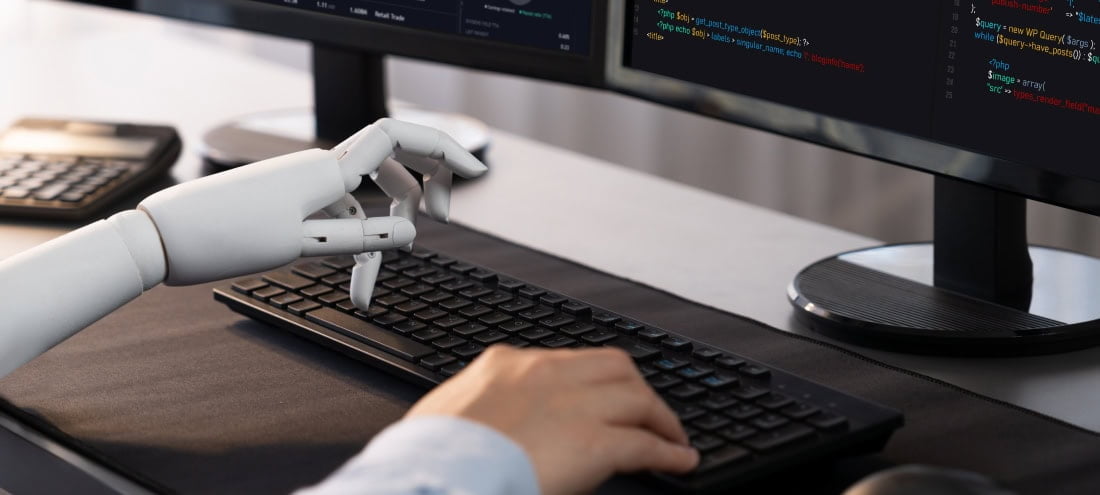

So it's no wonder that many people struggle with digitalization and are more afraid of the use of artificial intelligence than they expect it to bring improvements. A study recently conducted by the market research institute Censuswide on behalf of BlackLine confirms that this area of tension is also being discussed in companies' finance departments. A fundamental aspect of this is the fear of many that AI is the logical continuation of the changes already triggered by digitalization and will lead to more and more tasks being performed automatically. The specific concerns are manifold.
Automation and expertise
- Automation of tasks: AI and automation technologies can perform routine tasks faster and more efficiently than humans. The fear: This can lead to a reduction in the need for personnel in certain areas of the company.
- Technological unemployment: The use of AI can mean that companies need fewer workers to do the same amount of work.
- Skills requirements: AI can make certain skills less important, while others gain in importance. This can lead to discrepancies between the skills of employees and the requirements of employers.
- Economic inequality: AI has the potential to displace lower-skilled workers and boost the need for highly qualified specialists. The danger: the gap between high and low earners is widening.
- Uncertainty about the future of work: As AI technologies are still relatively new and there is little experience, there is uncertainty about how this future technology will affect the labor market in the long term.
Controversial discourse
However, such fears are nothing new. Innovations have always led to controversial discussions - often with the result that the more a topic is hyped, the greater the backlash. This is also shown by the results of the BlackLine study. It seems that a third of respondents would rather classify AI as a disruptive dark force that does everything independently and makes many functions in R and D superfluous. 36% of the C-level managers and finance professionals surveyed internationally fear that the introduction of AI could potentially lead to job losses; in Germany, the figure is only slightly more optimistic at 32%. Financial experts in the UK are the most confident about the use of AI in finance and accounting: only 28% have concerns here.
Expectation and error rate
At the same time, however, there are also many expectations associated with AI, for example in terms of reducing the error rate for repetitive tasks or the quality of company figures. The majority of the financial experts surveyed stated that cloud computing (80 percent), generative AI (78 percent) and new types of AI (76 percent) are essential to improve companies' resilience to future disruptions. While Germans are slightly less enthusiastic about this, they too believe that cloud computing (60 percent), generative AI (57 percent) and new types of AI (55 percent) are important to increase economic resilience.
Even though these technologies are still in their infancy, it is clear that the intensive exploration of AI has long since begun and is already being used in some areas in France and Austria - for example in BlackLine's AI-supported intercompany accounting. Open and innovative companies are already benefiting today by preventing transaction errors, minimizing the time and resources required and improving the validity of their financial figures. All of this contributes to better profitability, sustainability and resilience of companies. From this perspective, it is not a question of whether modern technology is destroying jobs, but only of how it is changing them and leading companies into the future.
Click here for the partner entry:







